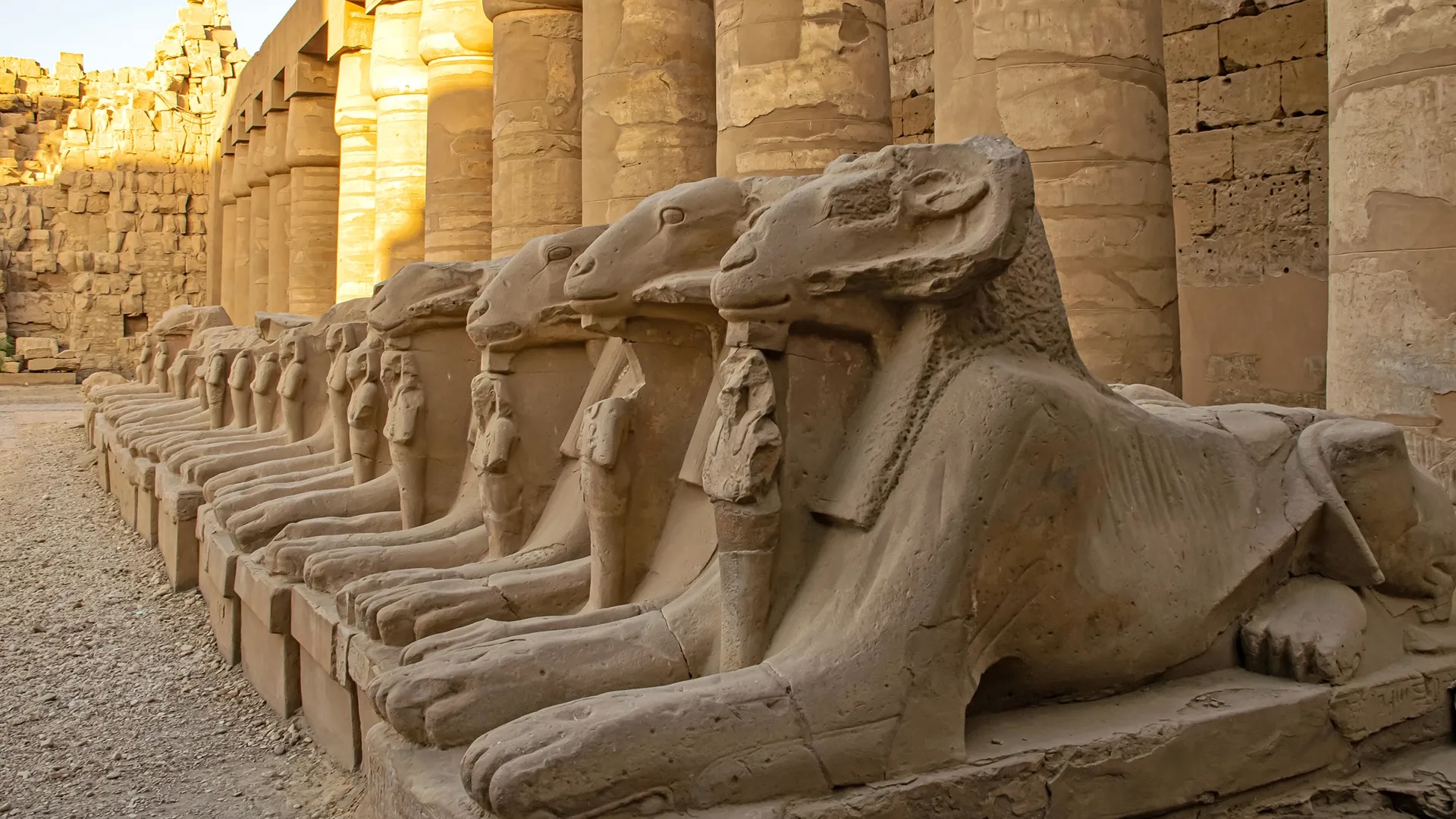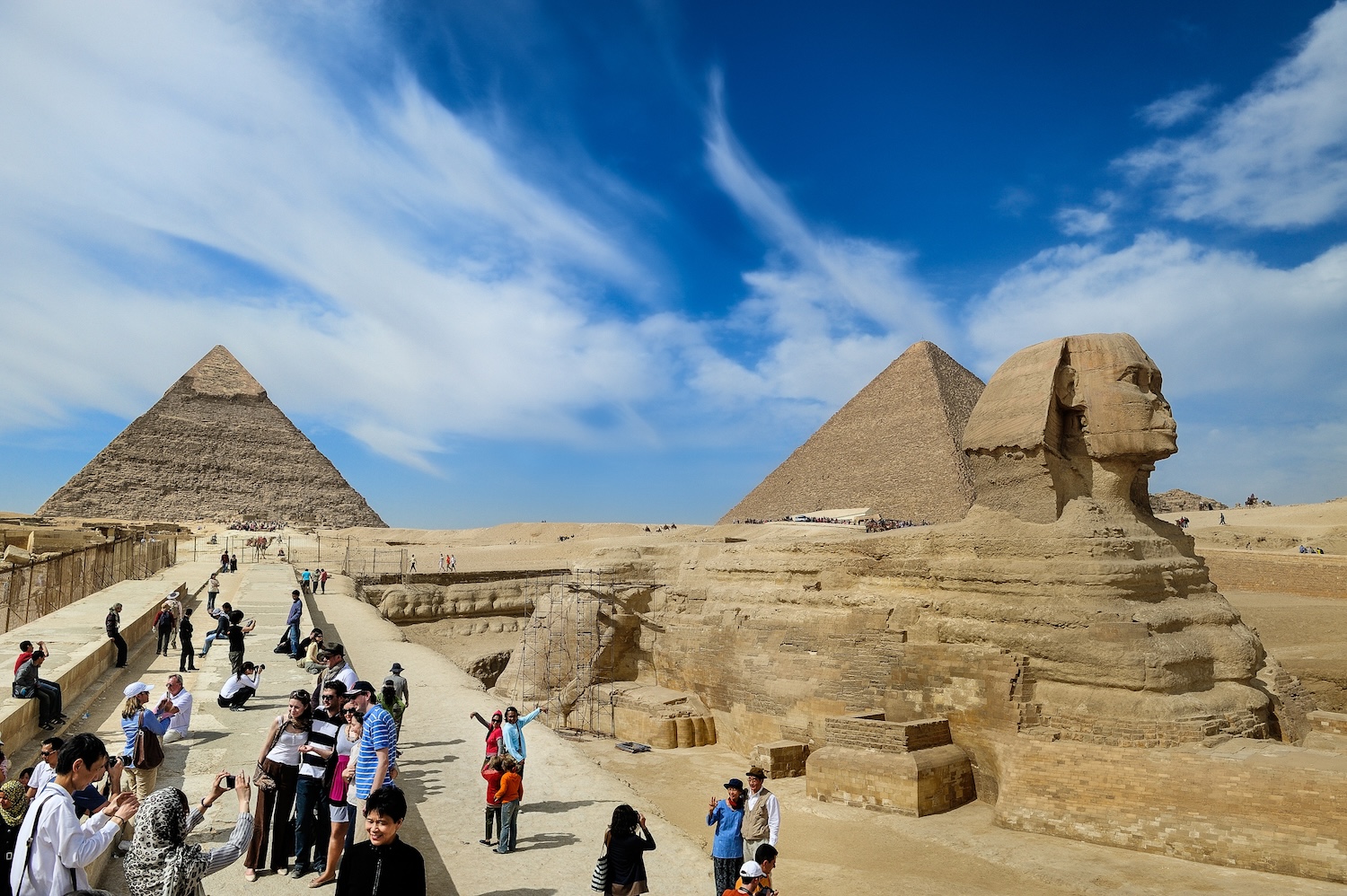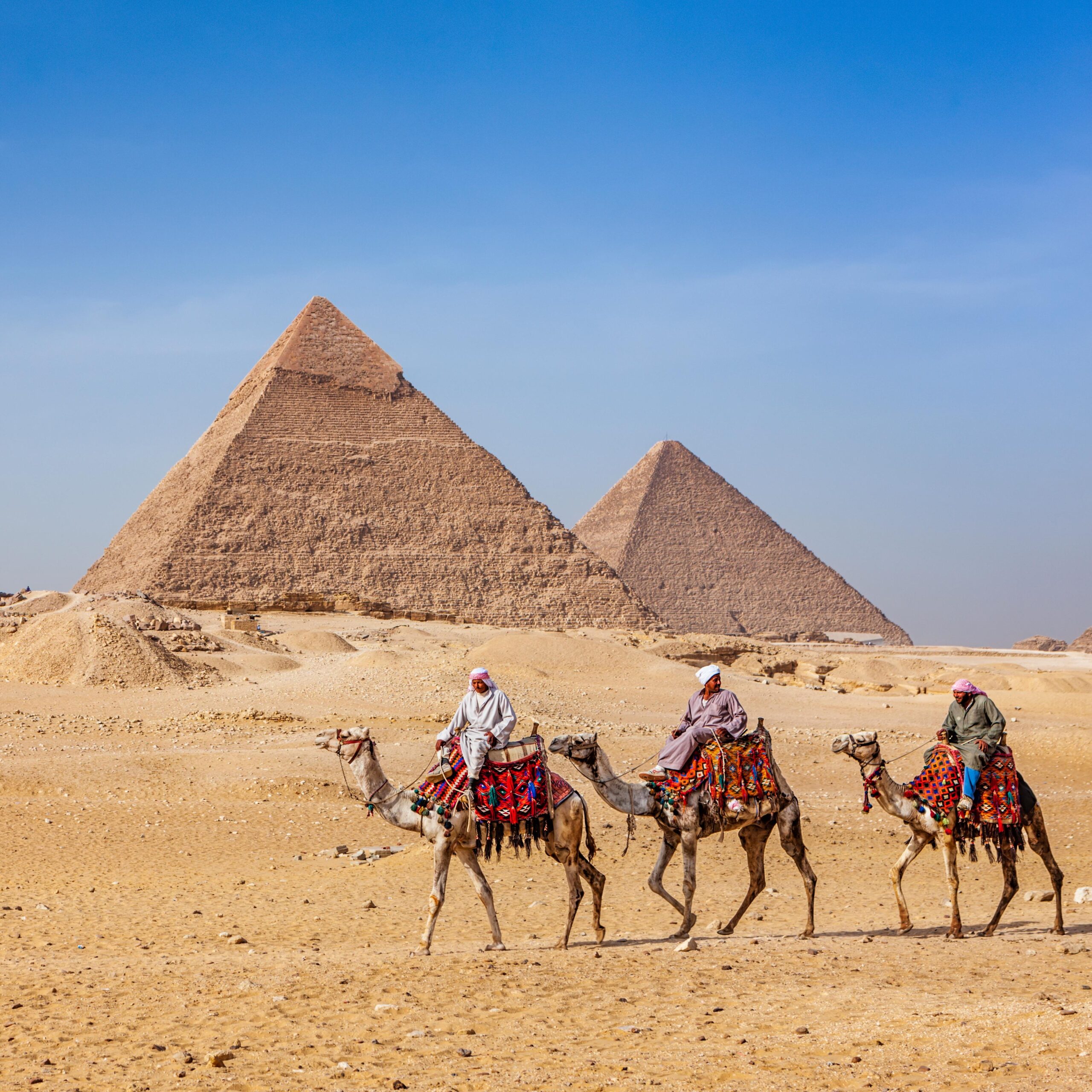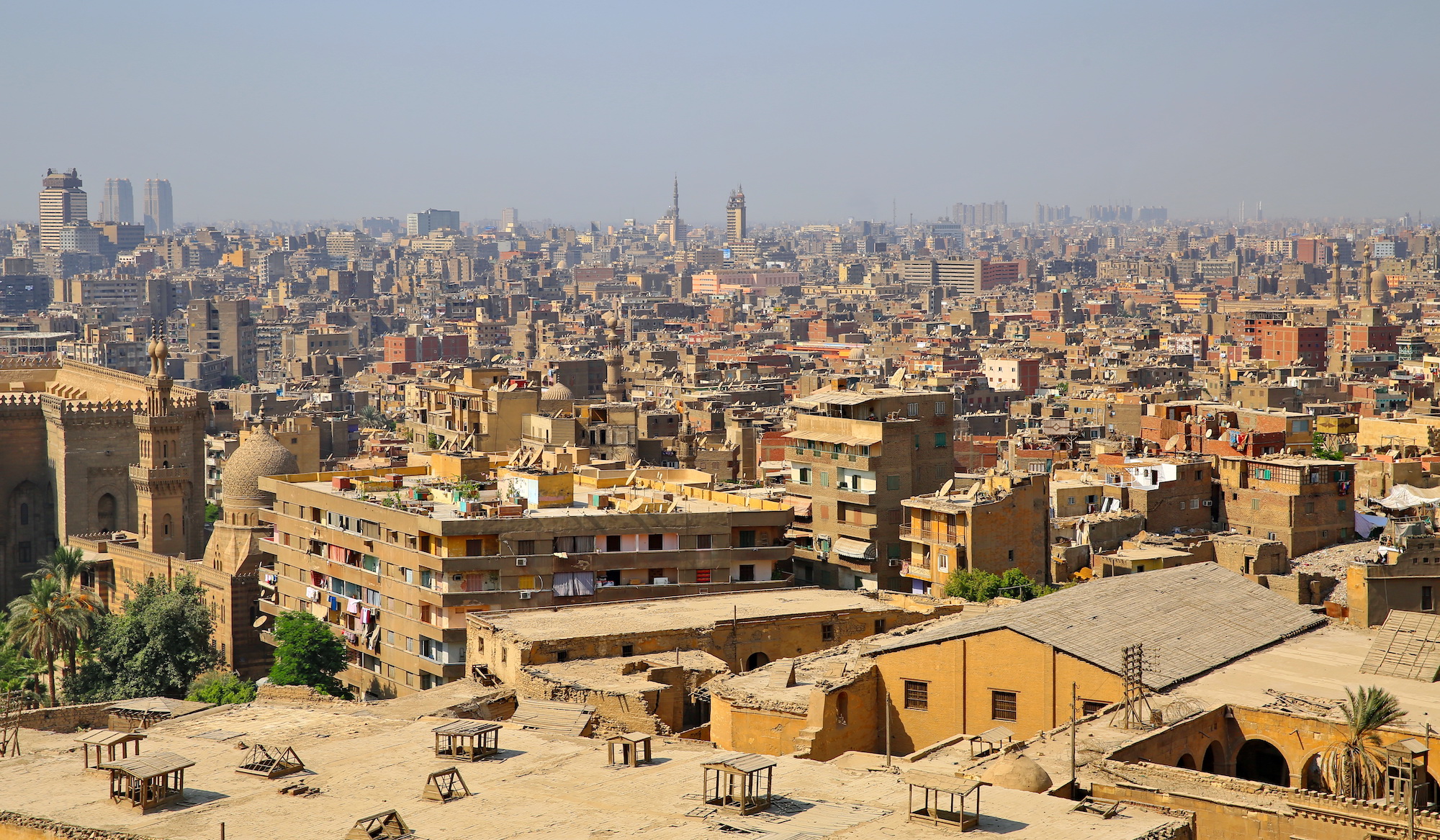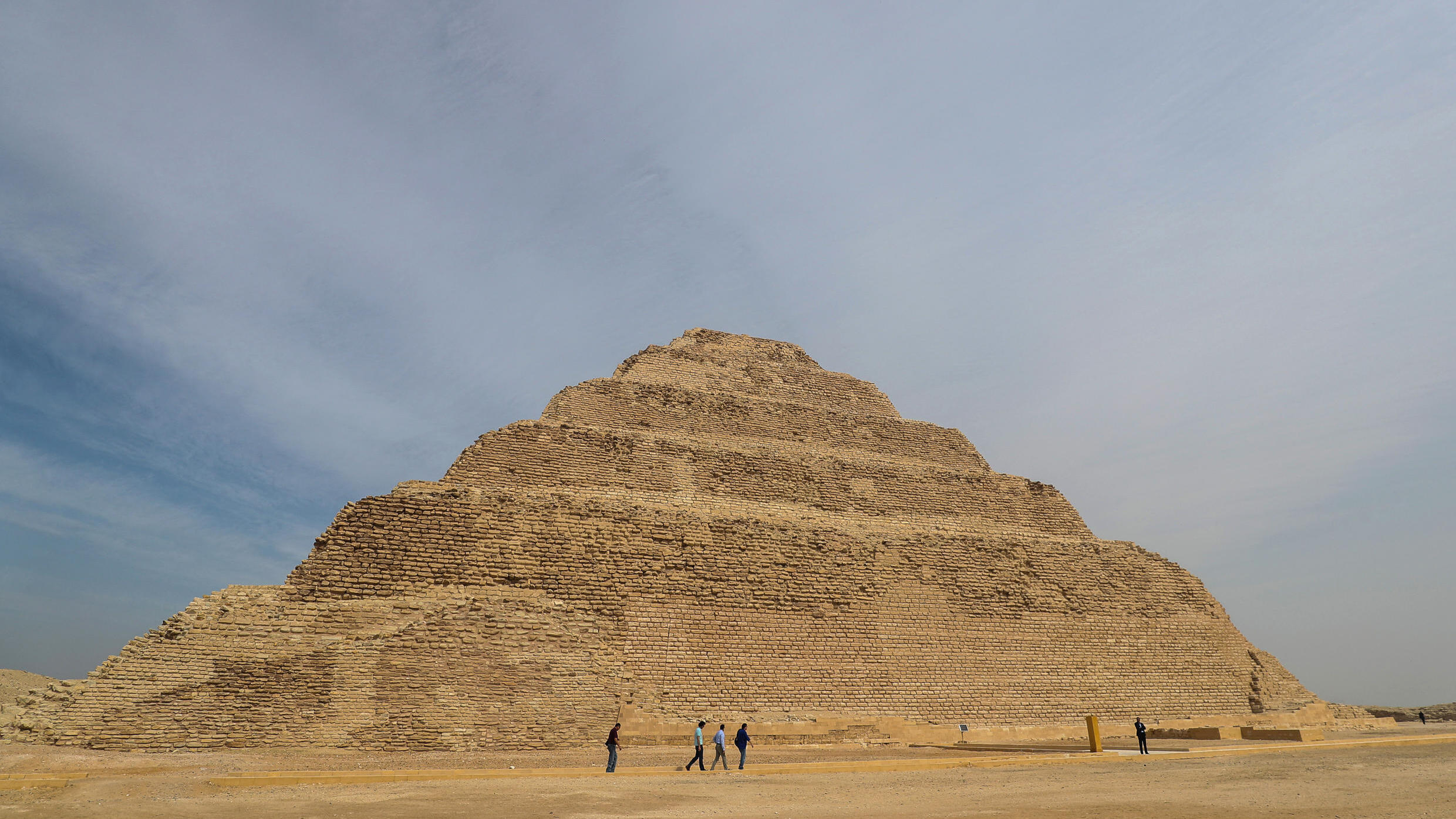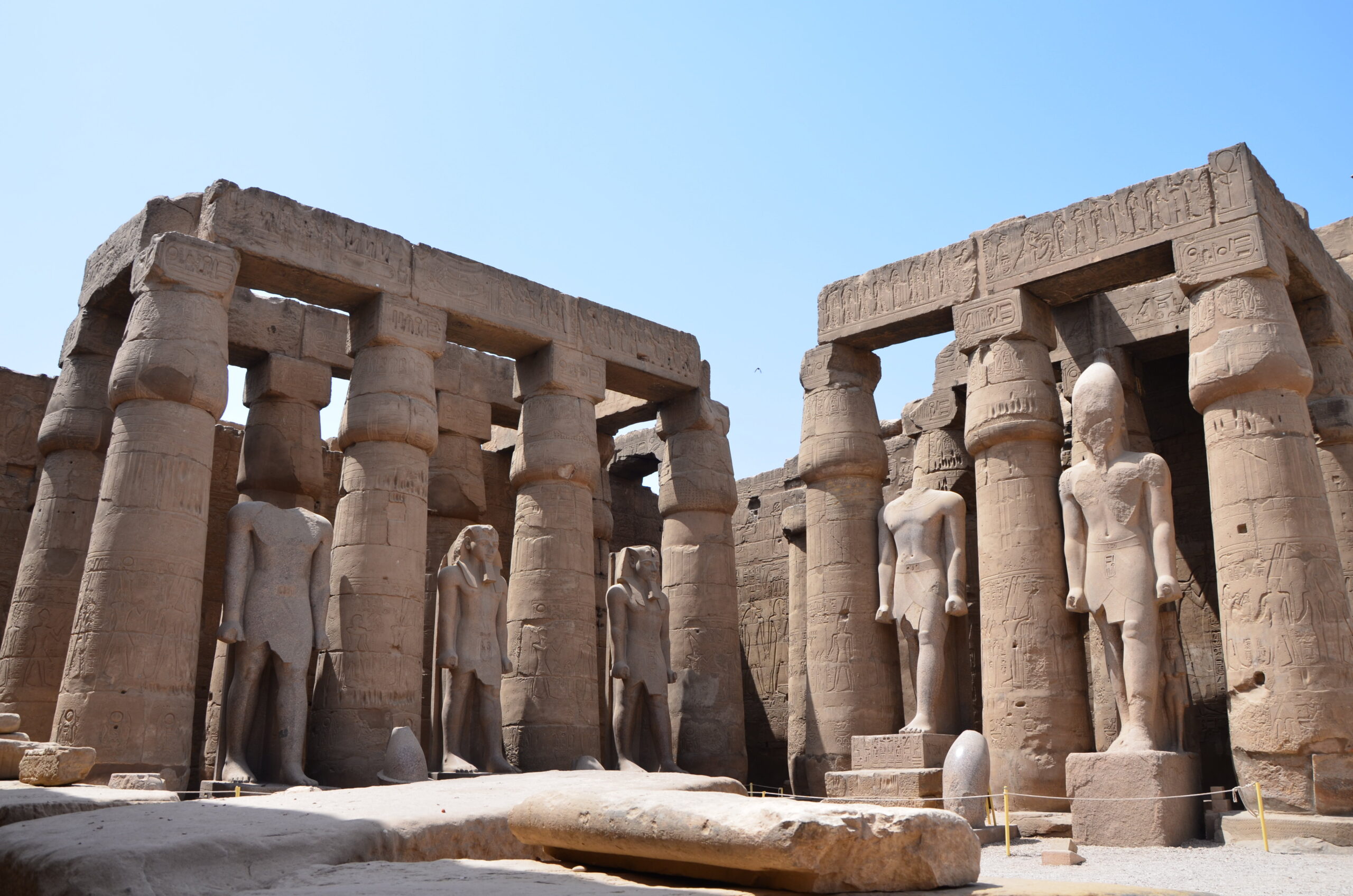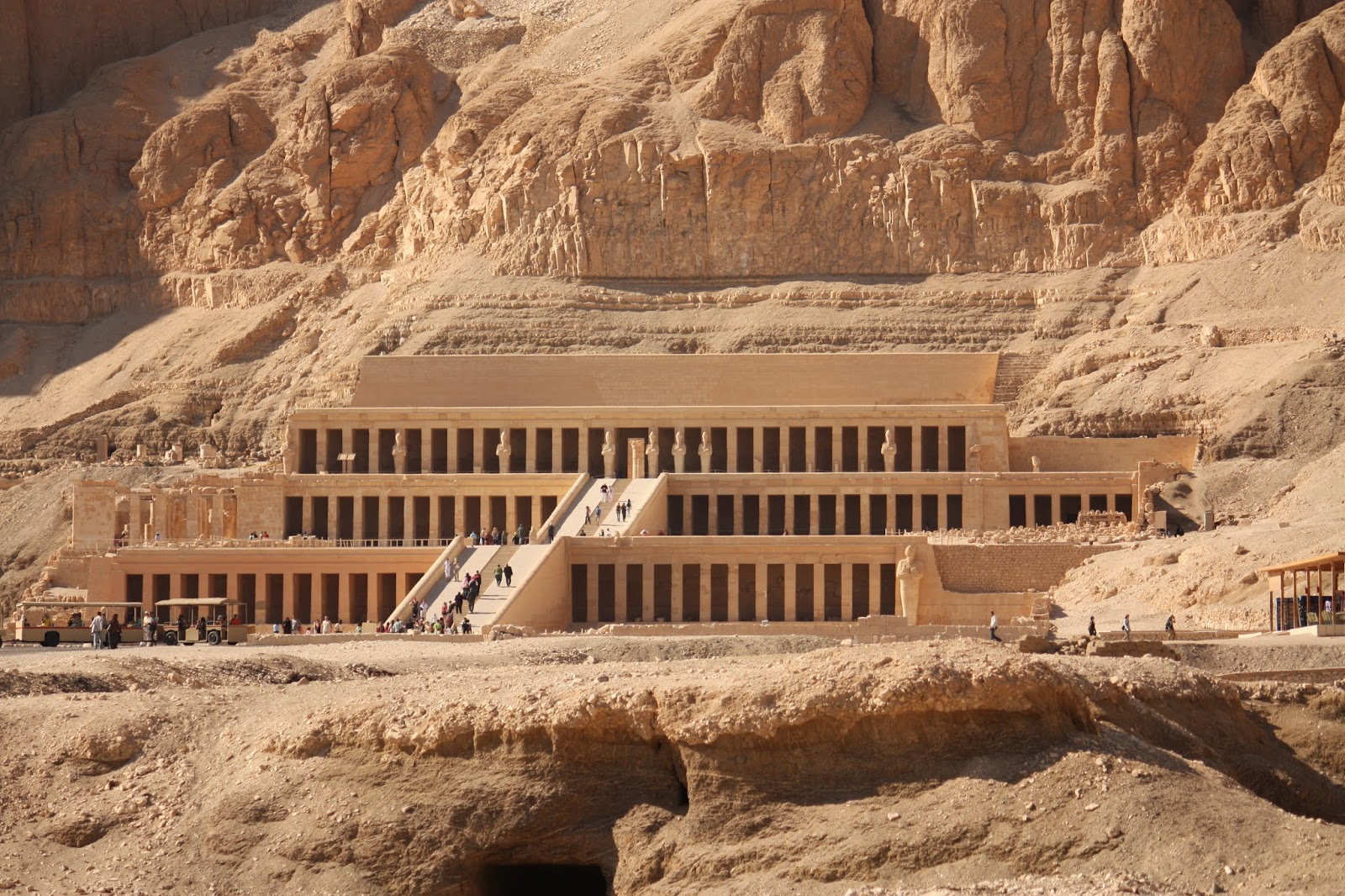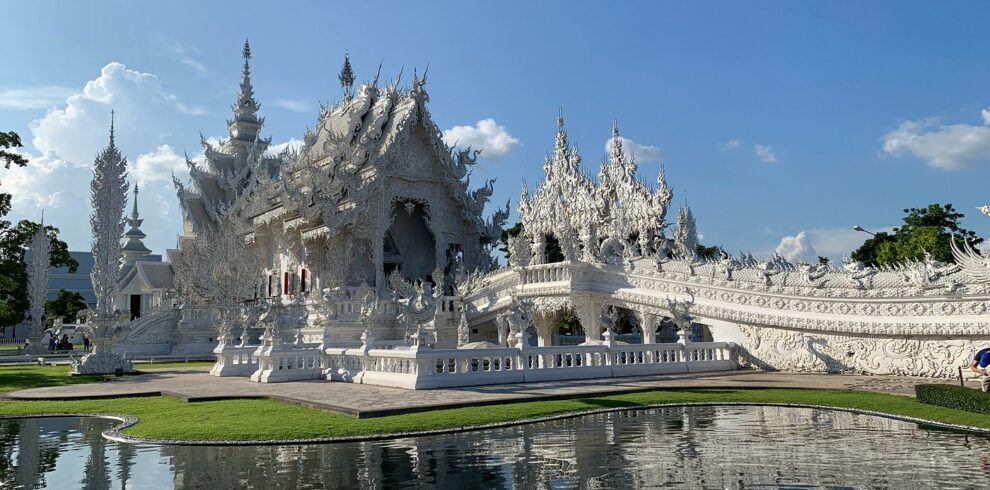Explore the wonders of Egypt with this 6-day itinerary. Begin your journey in Cairo, where you’ll visit the iconic Pyramids, the Egyptian Museum, and historic sites like the Citadel of Salah El-Din and Khan El-Khalili market. Then, fly to Luxor to discover ancient temples, including Dendera Temple and Luxor Temple. Delve into the history of the Valley of the Kings and Karnak Temple. Your adventure ends with a departure from Luxor Airport. This itinerary offers a comprehensive experience of Egypt’s rich cultural heritage and historic landmarks.
Overview
Explore Cairo and Luxor in 6 days on a private guided tour. In Cairo, visit the Great Pyramids of Giza and Sakkara, Egyptian Museum, and shop at Khan El Khalili Bazaar. Then, head to Luxor to discover Dendera Temple complex, Queen Hatshepsut’s Temple, the Valley of the Kings, and the impressive Karnak and Luxor Temples, all showcasing ancient Egyptian wonders.
Trip Highlights
- Experience all the essential attractions in and around Cairo
- Explore the Pyramids of Giza and behold the Sphinx.
- Gain deeper insights into Egypt's illustrious history with a visit to Egyptian Museum.
- Explore the highlights of Luxor including Valley of the Kings & Karnak Temple
Itinerary
The Trip Cost Includes
- 1. Accommodation
- - 5 nights in twin-share rooms at 4/5 star Cairo/Luxor hotel with breakfast
- * Please be aware that all accommodations are subject to change until 2-4 weeks before the departure date. Final accommodation details will be provided to you with your finalized travel documents.
- 2. Guide: Experienced English-speaking guide throughout tour
- 3. Meal: 5 Breakfasts
- *This tour offers Vegetarian, Vegan and Halal food options on request. Simply let us know the food option that you prefer.
- 4. Transportation:
- - Ground tour with A/C vehicle.
- - Flight ticket from Cairo to Luxor.
- 5. Entrance tickets: Entrance fees for the included sightseeing.
- 6. Other fees: Government tax and travel agency handling fee.
The Trip Cost Excludes
- 1. Egypt Visa of Egypt.
- 2. Any optional visits/tours for an additional cost(Please contact our team of Travel Experts if you want to add some of them to your tour.)
- - Visit to any of Giza Pyramids from inside.
- - Any optional visits/tours that you gonna take during the trip.
- - Sound & Light show at the Pyramids
- 3. Meals not indicated in the itinerary
- 4. Drinks, snacks and other personal expenses (e.g. laundry)
- 5. Travel insurance.
- 6. Tipping to your guide & driver.
- 7. International Flights arrival at & Departure from Luxor.
Frequently asked Questions
Tourists from many countries, including the US, UK, Canada, New Zealand, and EU nations, can easily obtain a renewable, single-entry visa upon arrival at select Egyptian airports (listed below). These tourist visas typically allow for a 30-day stay and cost $25. Alternatively, travelers have the option to apply for a multiple-entry visa for $60. Currently, there are no mandatory vaccination requirements for entering Egypt.
However, guests who travel with us receive visa services as a standard inclusion in their trip. For all nationalities eligible for visa on arrival, the visa fee is already included in the trip price. Upon arrival at the airport, our representative will assist in getting your passport stamped, allowing you to proceed directly to the luggage carousel.
For more detailed information, you can visit the official Egyptian eVisa website or contact the nearest Egyptian consulate or embassy.
To apply for an Egyptian tourist visa, you will need a passport with at least six months of validity and at least one blank page. Visa on arrival entry points in Egypt are available at the following airports:
- Cairo International Airport
- Hurghada International Airport
- St Catherine International Airport, St Catherine
- Borg El Arab International Airport, Alexandria
- Sharm El Sheikh International Airport
- Luxor International Airport
Annapurna Base Camp is a Grade B or a moderately difficult trekking route. So any fit person can do this trek, even if you do not have any previous experience. You should be aware of what to expect and mentally prepare for it. Then, as long as you will to, you can.
On average, you walk about 4 to 6 hours per day. One or two days can be as less as 3hrs and one or two days can be as long as 7hrs.
The ideal time to visit Egypt is during the months from October to April when you can expect pleasant temperatures and abundant sunshine. Among these, the winter months of November to February are the most popular for tourists seeking to escape colder climates and explore attractions like Cairo and the pyramids.
Spring and autumn also offer excellent weather conditions with fewer crowds, making them great choices for planning your Egypt holiday packages. The shoulder months of October, March, and April, in particular, provide pleasant weather and fewer tourists, ideal for visiting the main attractions and enjoying a Nile River cruise.
On the other hand, the summer months, from May to September, can be quite hot with temperatures ranging from the mid-80s to over 100°F. During this time, tourist numbers decrease due to the harsh daytime sun, but it’s a good period to explore Egypt’s coastal areas and relax at seaside resorts.
Egypt had been actively working to ensure the safety of tourists, and many areas in the country were considered safe for travel. However, it’s important to note that the safety situation can change, and it’s advisable to check the latest travel advisories and updates from your government’s foreign affairs department or embassy before planning your trip.
Here are some general safety tips for traveling to Egypt:
- Stay Informed: Keep yourself updated on the current political and security situation in Egypt through reliable news sources and government travel advisories.
- Follow Local Advice: While in Egypt, follow the advice of local authorities and respect any curfews or safety measures that may be in place.
- Be Cautious in Certain Areas: Some regions, particularly near the border areas, may have specific safety concerns. Research your itinerary and exercise caution in these areas.
- Secure Your Belongings: Like in any other destination, take precautions to secure your belongings and avoid displaying valuable items in public.
- Respect Local Customs: Be mindful of local customs, traditions, and dress codes, especially when visiting religious sites.
When planning your trip to Egypt, here are some must-visit destinations and attractions:
- Cairo: Start your journey in the capital city where you can explore the iconic Pyramids of Giza and the Sphinx. Don’t miss the Egyptian Museum in Cairo, home to countless ancient artifacts.
- Luxor: Visit Luxor to delve deeper into the wonders of ancient Egypt. Explore the Valley of the Kings, Colossi of Memnon, and the impressive Temple of Ramesses III.
- Aswan: Aswan is known for its serene beauty and historic sites. Explore the Temple of Philae, Edfu, and Kom Ombo temple complexes.
- Red Sea Resorts: Consider adding a beach stay in Hurghada or El Quseir, where you can relax, swim, and snorkel in the stunning coral reefs of the Red Sea.
- Alexandria: Head north to Alexandria to discover its Greco-Roman history, including sites like the Qaitbay Citadel and the Catacombs of Kom El Shoqafa.
- Optional Jordan Extension: Many travelers combine their Egypt trip with a visit to Jordan to explore the ancient city of Petra and other historical sites.
The best way to travel across longer distances in Egypt, such as from Cairo to Luxor, is by taking a domestic flight. For shorter distances and local exploration, it’s convenient to use private cars with a guide or choose organized tours.
Another popular and scenic way to explore Egypt is by taking a cruise along the Nile River. A Nile cruise typically runs between Luxor and Aswan, allowing travelers to discover the ancient civilizations and historic sites that flourished on the banks of the Nile. It provides a unique perspective on Egypt’s rich history and culture while offering a comfortable and enjoyable journey.
The currency of Egypt is the Egyptian pound (LE or EGP), and it is divided into 100 piastres (PT). Banknotes are available in denominations of LE5, LE10, LE20, LE50, LE100, and LE200, while coins come in LE1, PT50, and PT25 denominations. You can use credit cards in larger hotels, restaurants, and shops, but it’s advisable to carry some cash for transactions in smaller establishments and markets. ATMs are readily available in major towns, and currency exchange can be done at banks and Forex outlets.
Modern Standard Arabic is the official language of Egypt. However, you’ll predominantly hear people speaking the Egyptian dialect, a colloquial variety of Modern Standard Arabic with some distinct words and pronunciation. Egyptian Arabic is widely understood across the region because Egyptian cinema and soap operas are popular in the Arab world.
English is also commonly spoken in tourist areas, and many guides, hotel staff, and service workers are proficient in English. In larger cities and towns, you should have no trouble communicating in English. However, in more remote areas, especially in Upper Egypt, English proficiency may be limited, and it’s helpful to have some basic Arabic phrases for communication.
The time zone in Egypt is UTC+2 from October to April and UTC+3 from April to October.
The duration of a flight from the United States to Egypt can vary depending on your departure city and the specific flight route. On average:
- From New York to Cairo: It takes approximately 11 to 15 hours, depending on the flight route and any layovers.
- From Los Angeles to Cairo: The flight duration is typically around 22 hours, including layovers.
The exact duration may vary based on factors such as the airline, flight route, and layover times. It’s advisable to check with airlines for specific flight options and schedules. Delta, Air France, and other major carriers often operate flights to Egypt from various U.S. cities.
When visiting Egypt as a tourist, it’s advisable to dress modestly and respectfully. Here are some clothing recommendations:
- Modest Attire: Choose clothing that covers your shoulders, chest, and knees. For women, this may mean wearing tops with sleeves (short sleeves are generally acceptable) and bottoms that extend below the knee. For men, long trousers are appropriate.
- Loose-Fitting Clothing: Opt for loose-fitting garments made of breathable fabrics like cotton or linen. Loose clothing not only adheres to modesty but also helps you stay comfortable in Egypt’s climate.
- Avoid Revealing Outfits: Avoid wearing clothing that is too tight, transparent, or shows too much skin. This applies to both men and women.
- Footwear: Comfortable, closed-toe shoes are recommended for walking and sightseeing, as they protect your feet from dust, sand, and uneven terrain. Sandals are acceptable in beach areas or resorts.
- Head Covering for Women: While it’s not mandatory for female tourists to cover their heads, carrying a scarf or shawl that can be draped over your head and shoulders when entering religious sites is a respectful gesture.
- Swimwear: Swimsuits are appropriate for beach resorts and hotel pools. However, it’s advisable to cover up when you’re not in these specific areas.
- Respect Local Customs: Be mindful of local customs and dress codes, especially in more conservative areas or when visiting mosques and temples. It’s essential to show respect for the culture and traditions of Egypt.
By dressing modestly and respectfully, you can not only navigate Egypt comfortably but also demonstrate cultural sensitivity and respect for the local population.
Egyptian cuisine is a flavorful and diverse blend of Mediterranean, Middle Eastern, and African influences. Staple foods include bread, rice, and fava beans, with lamb, chicken, and fish commonly used as protein sources. Spices like garlic, cumin, and coriander, along with herbs like parsley, add depth to the dishes. Street food delights include koshari, ta’ameya (Egyptian falafel), and shawarma. Desserts like baklava, basbousa, and mahalabiya satisfy sweet cravings. Popular beverages include hibiscus tea (karkadeh) and mint tea. Egyptian cuisine showcases a rich tapestry of flavors and dishes, making it a delightful exploration for food enthusiasts.
Bargaining is a common practice in Egyptian markets (souks). Start by offering a lower price and be prepared to negotiate until both parties reach a fair deal.
Egyptians are generally hospitable and friendly. It’s polite to greet with “As-salamu alaykum” (peace be upon you). When visiting mosques or homes, remove your shoes, and be respectful of local customs and traditions.
It’s generally not recommended to drink tap water in Egypt. Stick to bottled water for drinking and brushing your teeth to avoid stomach issues.

